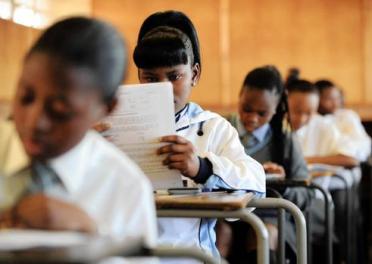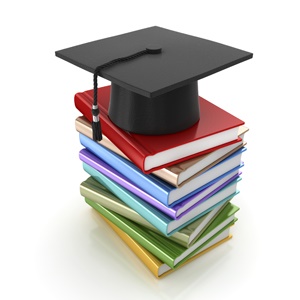Perhaps one of the biggest ongoing debates within South Africa’s education landscape today is whether or not the IEB (Independent Examinations Board) syllabus that is implemented in private schools, is superior to that of the government schools’ DBE (Department of Basic Education). With private schooling so much more expensive than government schooling, the common consensus is that the IEB would naturally be of a higher standard, and better prepare South Africa’s youth for tertiary institutions. However, many have argued that there is no substantial gulf in class between the two and that it relies heavier upon particular individuals’ respective work ethics and personalities than the actual standard of the respective syllabuses themselves.
As IEB students tend to generally come from wealthier backgrounds (since they are educated at private schools), it logically follows that their learning environments, as well as the standards of teaching which they are subjected to, would be of a higher standard. A recent study claimed that teachers in government schools failed to teach 60% of their lessons by the time the academic year came to a close (Macfarlane, D et al. 2012), which had massive implications for the results of the learners. However, although the unreliability and lack of accountability shown by some of the schools that operate under the DBE umbrella are unacceptable, it is worth noting that a large percentage of these schools are located in very rural areas, which would ultimately have a huge bearing on the statistics. Ella van Geuns, a Journalism & Media Studies (JMS) student at Rhodes University, and somebody who has experienced both government and private schooling in South Africa provided a better understanding of the contrasting environments at different schools. “At IEB schools the teachers need to be more invested in the students because the work is more complex. It’s a far more interactive learning space than you’d find at a government school.”
 Last year recorded some very interesting results in the way of the matriculants’ respective pass rates from both government and IEB schools. The 2016 pass rate for private schools was calculated to be 98.67%, up from 2015’s 98.30%, and calculated from “11 022 full-time and 703 part-time candidates from 237 examination venues” across Southern Africa (Staff Reporter, 2016). On the other hand, the government schools’ pass rates were said to be 72.5%, up from 70.7% the previous year, recorded from over 80 000 students that wrote (Staff Writer, 2017). One should take into account that the government’s pass rate being so low is due to numerous mitigating factors. Aside from teacher absenteeism, many students either drop out, need to travel vast distances to get to school every day (which may be too much for them to cope with on certain days) and/ or bunk classes regularly; all of which negatively impact their preparation for exams. In total; 93% of the distribution of learners in the South African education system were public (or DBE) schools, while 4% were private (or IEB) schools (Department of Basic Education, 2015).
Last year recorded some very interesting results in the way of the matriculants’ respective pass rates from both government and IEB schools. The 2016 pass rate for private schools was calculated to be 98.67%, up from 2015’s 98.30%, and calculated from “11 022 full-time and 703 part-time candidates from 237 examination venues” across Southern Africa (Staff Reporter, 2016). On the other hand, the government schools’ pass rates were said to be 72.5%, up from 70.7% the previous year, recorded from over 80 000 students that wrote (Staff Writer, 2017). One should take into account that the government’s pass rate being so low is due to numerous mitigating factors. Aside from teacher absenteeism, many students either drop out, need to travel vast distances to get to school every day (which may be too much for them to cope with on certain days) and/ or bunk classes regularly; all of which negatively impact their preparation for exams. In total; 93% of the distribution of learners in the South African education system were public (or DBE) schools, while 4% were private (or IEB) schools (Department of Basic Education, 2015).
Researching about the differences in each syllabus, and which students performed better at university proved to be extremely intriguing. Ella once again added some insight to the conversation, highlighting what she makes the biggest contrasts to be. “The IEB demands higher-order thinking: it’s parrot learning versus application; your understanding is much more in-depth and not just surface-level knowledge. You need to be able to apply your knowledge, so I guess my point would be that the IEB helps much more with generating a far deeper level of knowledge in comparison to the government, which contains much more artificial content.”
 Rod Amner, a JMS lecturer at RhodesUniversity, weighed in on the debate with regards to the results of government and IEB students’ respective results and performances at university. “The IEB is obviously an international benchmark, and the standards there are more demanding – of course, the majority of them come from privileged backgrounds. IEB students are better prepared for university because of the nature of the schools that they came from.” Amner went on to stress that merely attending an IEB school won’t necessarily make for quality results; instead underlining the unique characteristics of respective individuals with regards to sound performance. “One of the things I’ve heard is that not all IEB graduates fly at university. There are so many variables involved – personality, work ethic – and if students begin to struggle with their work they battle to recover by themselves. Another point is that, while the standards may not be as high at government schools, many students feel more comfortable there (in a less results-driven environment). Students are also exposed to a greater diversity of people at government schools, which aids them in climatizing to life at university.”
Rod Amner, a JMS lecturer at RhodesUniversity, weighed in on the debate with regards to the results of government and IEB students’ respective results and performances at university. “The IEB is obviously an international benchmark, and the standards there are more demanding – of course, the majority of them come from privileged backgrounds. IEB students are better prepared for university because of the nature of the schools that they came from.” Amner went on to stress that merely attending an IEB school won’t necessarily make for quality results; instead underlining the unique characteristics of respective individuals with regards to sound performance. “One of the things I’ve heard is that not all IEB graduates fly at university. There are so many variables involved – personality, work ethic – and if students begin to struggle with their work they battle to recover by themselves. Another point is that, while the standards may not be as high at government schools, many students feel more comfortable there (in a less results-driven environment). Students are also exposed to a greater diversity of people at government schools, which aids them in climatizing to life at university.”
The fierce debate is sure to rage on in South Africa for the foreseeable future, as divided opinions over the superiority of the IEB and DBE continue to raise questions. There doesn’t seem to be a clear answer as to which better equips students for university, as a whole host of factors can affect the outcome of a student’s results after school. While it would seem that the IEB offers a greater challenge to the student, the learning environment, the state of the students’ personal lives as well as the respective work ethics/ personalities of the students all play huge roles – none of which should be understated.
